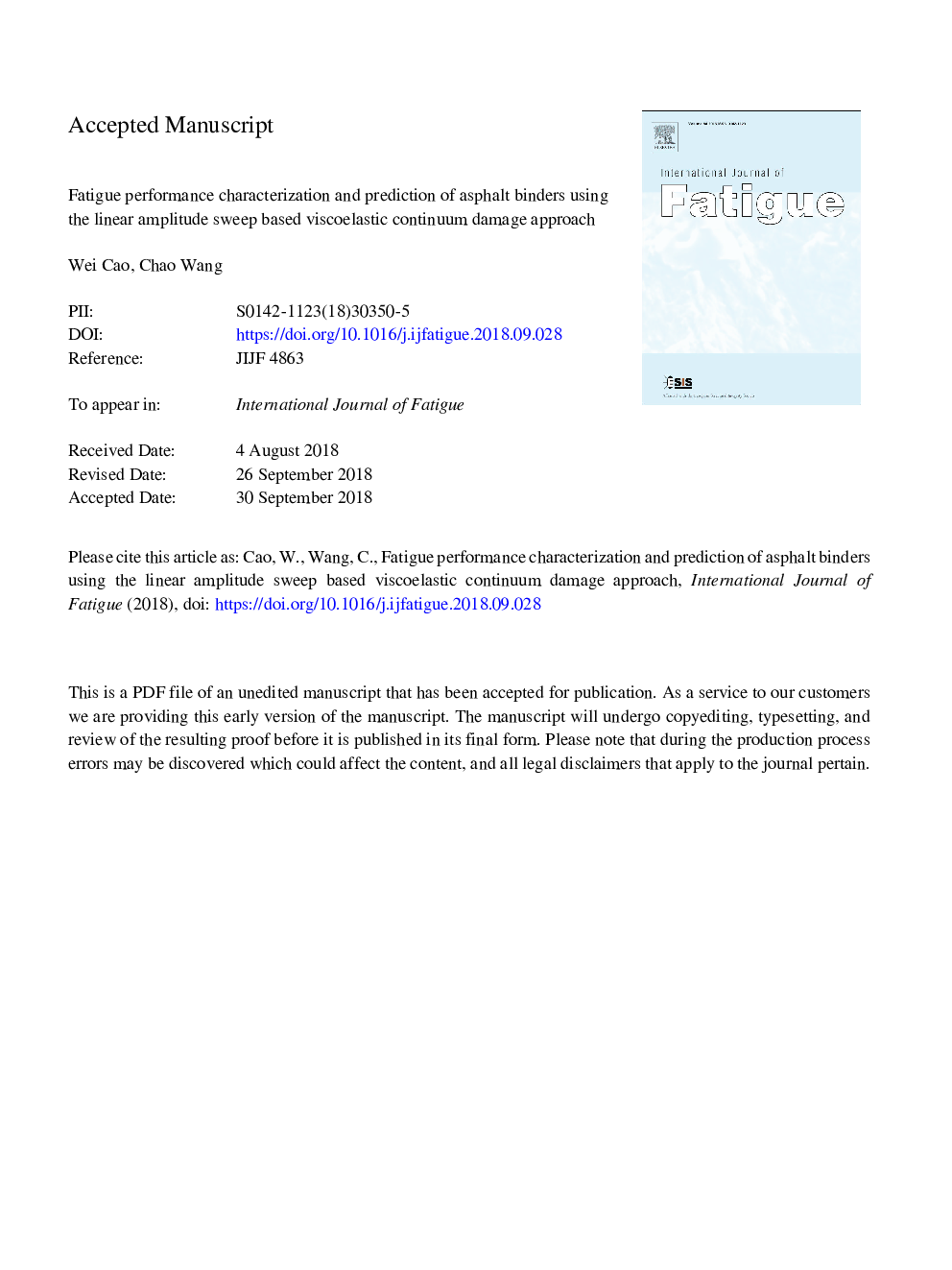| Article ID | Journal | Published Year | Pages | File Type |
|---|---|---|---|---|
| 11016305 | International Journal of Fatigue | 2019 | 33 Pages |
Abstract
This study assessed the fatigue performance of asphalt binders modified with crumb rubber, waste cooking oil (WCO), and Styrene-Butadiene-Styrene (SBS). The experimental program included linear amplitude sweep (LAS) and time sweep (TS) tests with different loading profiles under various test temperatures. The objective was to compare the fatigue analyses based on the recently proposed GR and WRsum failure criteria within the viscoelastic continuum damage (VECD) modeling framework. Simulation algorithms were developed for the two criteria which allowed for fatigue performance evaluation. The results indicated that the damage characteristic relationship was slightly dependent on test method and strain profile, and the degree of dependence was material specific. The two failure criteria appeared to be fundamental material functions; the GR criterion was temperature dependent but was able to unify both LAS and TS tests, while the WRsum criterion unified both test methods under all temperatures. With respect to modification, an optimum WCO dosage of 3% was identified according to the WRsum criterion for the best fatigue performance. Both the SBS and crumb rubber modifications were observed to significantly improve the fatigue resistance based on the two failure criteria.
Related Topics
Physical Sciences and Engineering
Engineering
Mechanical Engineering
Authors
Wei Cao, Chao Wang,
